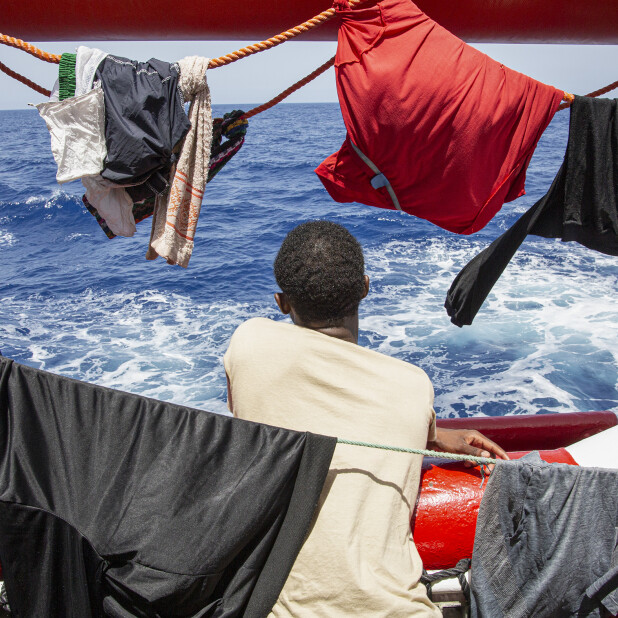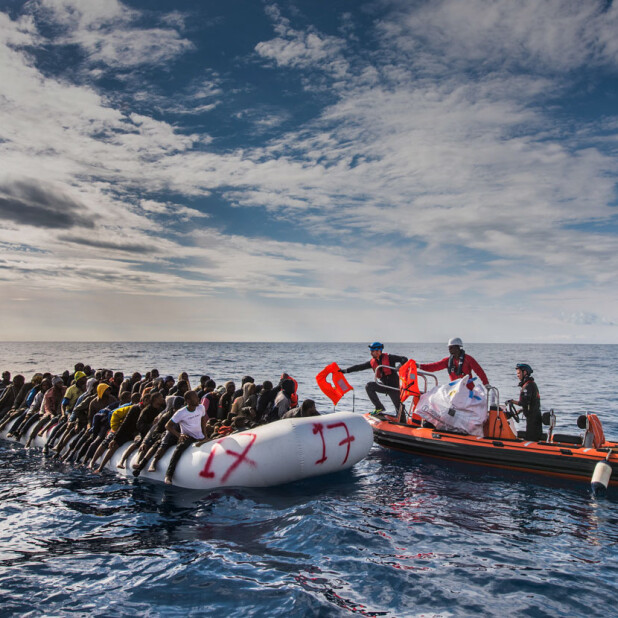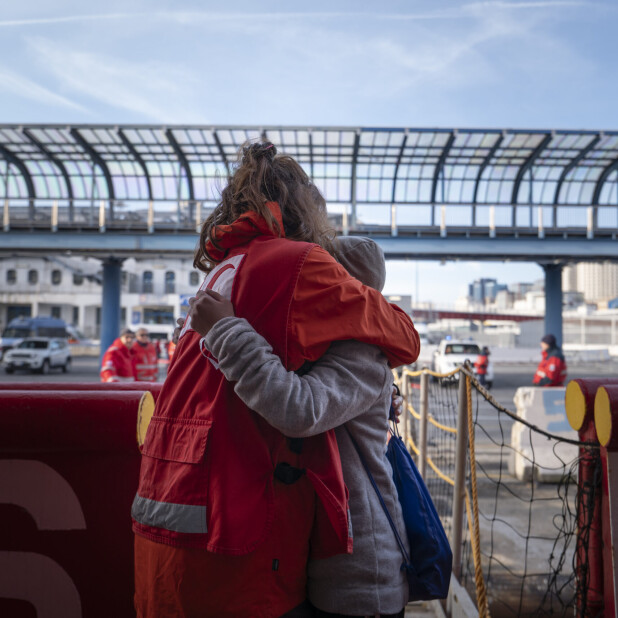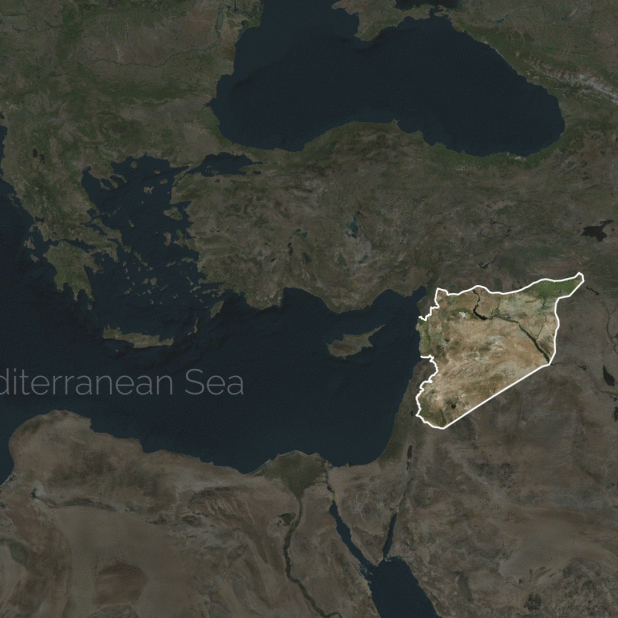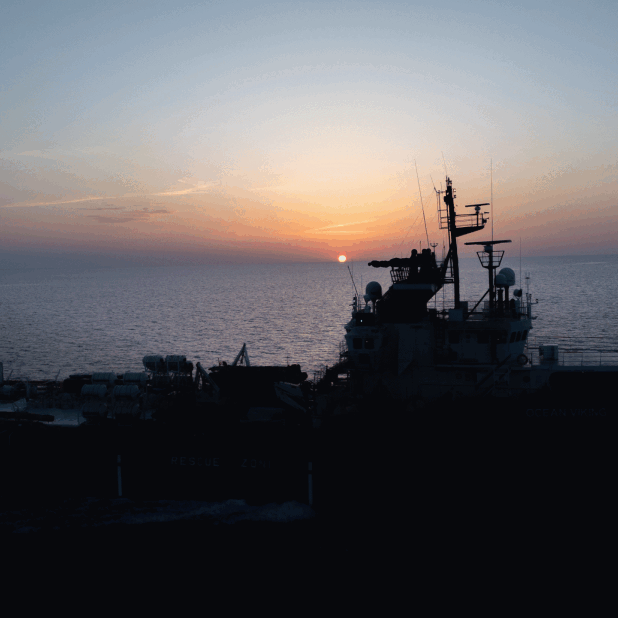
A taboo topic for most of the women and young girls we rescue at sea, menstruation nonetheless constitutes a factor of vulnerability that ‘exposes them to sexual and gender-based violence, as well as infections,’ indicates Ayla, head of the medical team on board the Ocean Viking.
“Women are even more vulnerable when they have their periods. More generally, they may have hygienic needs that exposes them to more risks,” recounts Ayla, who coordinates the medical team on board, consisting of a midwife, a doctor, and a nurse, to provide care to rescued individuals on the ship. Among them, 14% are women, without counting young girls.
Multiple infection risks
For Marion Ravit, a researcher at the Institute of Research for Development (IRD), “the inequalities suffered by women are further exacerbated by menstrual precarity,” especially in developing countries, notably due to the financial burden of obtaining period protection. [1]
When women are on migration journeys, this precarity is further accentuated. “Sometimes, women cannot find hygienic means to take care of their menstruation periods, or do not have a sufficient amount of hygiene products, which exposes them to infections,” explains Ayla.
Thus, during their migratory journey or in Libyan detention centers, simply being able to isolate oneself in toilets when a woman is on her period or needs relief can be impossible due to lack of facilities, or even dangerous when latrines are accessible. The head of the medical team mentions exposure to “increased risks of sexual and gender-based violence, which can also lead women to refrain from using the toilet when needed. And if they hold it for too long, they are likely to contract urinary tract infections.”
Moreover, during the crossing of the Mediterranean, which can last several days, women, men, and children are packed together so tightly that it is generally impossible to move, let alone stand up. Under these conditions, those aboard the embarkation are forced to relieve themselves and vomit directly into the boat, where seawater and fuel mix, a highly corrosive combination. In addition to infections, women are often the first to suffer from skin burns due to their position in the center of the boat, where they remain exposed to this liquid throughout the crossing.
We try to create a safe space for women.
On board the Ocean Viking, Ayla and her team do everything they can to ensure that women and young girls finally feel safe and regain their dignity. Gradually, they earn their trust and encourage them to confide in them in order to provide them with appropriate care. “If any infections, or unwanted pregnancies, or any other issues are ongoing, (…) we try to create a trusting relationship between them and the medical and protection teams onboard. We try to create a safe space for women to come to us with all their problems. For example, having hygiene products on board, having separate facilities for the women, separate from the men, creates a safe space for them, where they have their own circle, where the men are not allowed to enter.” This Shelter for women and children under twelve is primarily managed by the midwife.
[1] RAVIT, Marion, « La précarité menstruelle en Afrique subsaharienne : une question taboue », The Conversation, Institut de recherche pour le développement, December 2021

